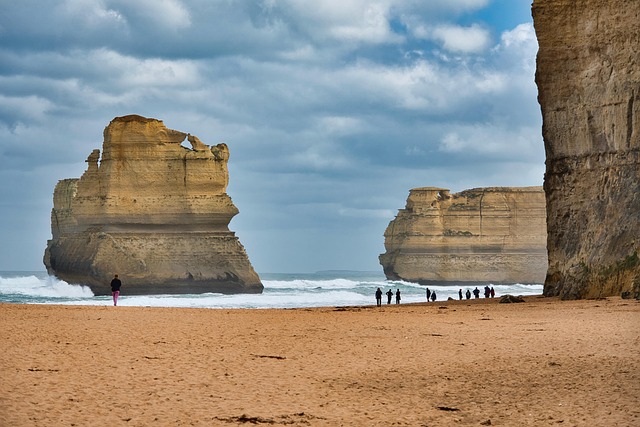Exploring the Depths: Marine Geology’s Impact on the Environment and Climate Change
As we venture into the intricacies of our planet, few fields awaken a sense of wonder and urgency like marine geology. This fascinating discipline explores the Earth’s oceanic crust, revealing layers of history that are not only essential for understanding our planet’s past but also critical to navigating future environmental challenges and climate change.
The Foundation of Our Oceans
Marine geology serves as the foundation upon which marine ecosystems are built. From the vast continental shelves to the daunting depths of the ocean floor, the geological structures influence everything from nutrient availability to habitat diversity. For instance, underwater volcanoes can create new landforms while also providing habitats for unique marine life. The interactions between geological processes and marine ecosystems illustrate a delicate balance that is easily disrupted, particularly as we face escalating concerns about climate change.
Climate Change and Ocean Dynamics
Our oceans play a pivotal role in regulating the Earth’s climate. They absorb excess heat and carbon dioxide from the atmosphere, acting as a buffer against climate change. However, the increasing temperatures and acidity levels profoundly impact marine geology. Coral reefs, essential for biodiversity and coastal protection, are vulnerable to bleaching due to warmer waters. Similarly, the physical changes in sea level caused by melting glaciers have direct geological implications, affecting sediment deposition and coastal erosion.
Understanding Natural Disasters
Furthermore, marine geology helps us comprehend the risks posed by natural disasters. Submarine landslides and earthquakes can have catastrophic effects on coastal communities. By studying past geological events through sediment analysis and ancient tectonic activities, researchers can improve predictive models, ultimately helping societies prepare for potential disasters. This intersection of marine geology and environmental safety emphasizes our need for greater awareness and responsiveness to natural processes.
The Call for Conservation
As custodians of the environment, it is our responsibility to appreciate the deep connections between marine geology, climate change, and ecological health. With rising sea levels threatening coastal habitats and increasing ocean temperatures disrupting delicate ecosystems, a holistic understanding of marine geology equips us to address these issues effectively. By advocating for conservation efforts and sustainable practices, we can protect our oceans, which are not just beautiful landscapes but also vital systems that sustain life on our planet.
In our quest to mitigate climate change, we must recognize that every geological formation beneath the waves tells a story and holds lessons that are crucial for our future. Engaging with marine geology inspires hope and action, reminding us of the interconnectedness of all life and the urgent need to safeguard our precious marine environments for generations to come.



